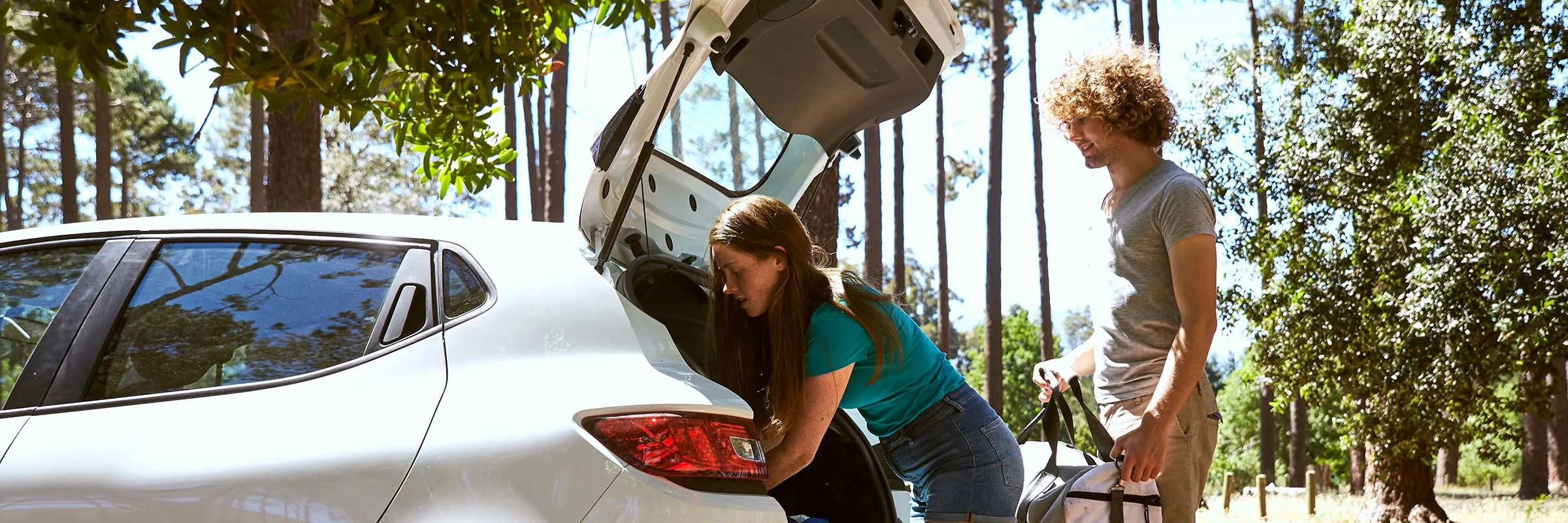You’ve asked friends, polled family members and searched the internet for the answer to a seemingly simple question: Should I buy a new or used car?
Of course, you’d love to slide behind the wheel of a new car. But when you’re trying to be budget-conscious, a used vehicle could be the way to go. Consider the pros and cons of each option so you can drive off the lot in the car that’s right for you.
Read more: Saving for your next vehicle? Ally Bank’s buckets and boosters tools can help.
Pros and cons of buying a new car
Buying a new car that comes with all the extra features can be exciting, but is it the right choice for you? Consider the pros and cons.
Pros
In addition to that new-car smell, buying new has its advantages:
The latest technology: A new vehicle usually comes equipped with the latest safety, technology and infotainment features — such as lane-keeping sensors, automatic braking capabilities and dashboard touchscreens — to help you avoid accidents and stay comfortable.
Enhanced gas mileage: New cars often get better gas mileage and produce fewer emissions than older cars.
Increased reliability: Since a new car has recently rolled off the assembly line, there’s less of a chance of a part breaking or something malfunctioning. If something does go wrong, a new car is protected by a manufacturer’s warranty, which should cover the cost of any necessary maintenance, repairs or replacements within a certain time frame (usually up to three years or 36,000 miles, whichever comes first).
You can be a savvy shopper by purchasing during specific times, which include year-end sales events, the end of the month, during model changeovers and during holiday sales events.
Cons
Before buying a new car, consider the potential disadvantages:
More expensive: The latest gadgets and gizmos come with a price, with the average new vehicle costing almost $50,000, according to Kelley Blue Book.
Higher insurance costs: A new car may be more expensive to insure if additional coverage is needed, like comprehensive or collision coverage, or even gap coverage.
Depreciation: The value of a new car can drop by more than 20% after the first 12 months of ownership, and 10% annually for the following four years.
Our personal vehicle financing offerings provide options and terms to suit different budgets.
Pros and cons of buying a used car
Buying a used car might be the right move for you and your budget. Consider the advantages and disadvantages.
Pros
Buying a used car comes with perks like:
Less expensive: The price of a used car is usually less than the cost of a new one, meaning you could have a cheaper monthly payment and the total amount you’ll pay over the lifetime of your contract may be less, too.
Lower insurance costs and fees: Since used cars typically have a lower market value, it’s often cheaper for insurance companies to replace or repair in the event of an accident, resulting in lower premiums.
Cons
The lower costs of buying used might still come with a price, including:
Lack of car history: One of the biggest disadvantages of buying a used car is that you may not get a complete picture of its maintenance and repair history.
Compromise on features: When buying a preowned vehicle, you might have to settle on certain features — or even the make and model — because your choices are limited to what’s available in the existing inventory.
Increased maintenance costs: While vehicle reliability is improving across the board, used cars typically have higher repair charges than new cars since they’re older and may have parts that are harder to find. An Ally Bank Savings Account can help you prepare for unexpected financial costs.
How to choose whether you should buy a new or used car
When searching for your dream car, keep in mind:
Your budget: Knowing your budget is the first step to understanding what you can afford.
What you’re willing to compromise on: Advanced technology features, premium paint colors and luxury interior finishes can all increase the price of a car significantly, so think about which features are most important and which you can live without.
“New or used?”
This might always be a question that’s difficult to answer. And that’s okay. But after you’ve considered all the pros and cons of each option, you’ll have the confidence to make a decision that’s best for your budget.



